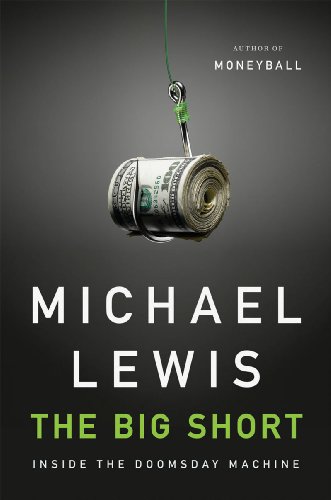

As Goldman Sachs chairman, Lloyd Blankfein was intending to pay out $24 billion in bonuses to his staff, he noted that if he were to choose between the general interest and his staff he would choose his staff. Rallying his troops is characteristic for Blankfein who believes that he is doing "god's work" and is generally a personalization of power. No wonder his executives rallied - after all you don't kill the golden goose. While this is another example of Goldman and Blankfein exercising bad communication, it has nothing to do with the real issues.
The role played by Goldman Sachs goes way beyond the Abacus story. Reading Michael Lewis's "The Big Short," it is clear that Goldman shifted from issuing CDSs on the CDOs guaranteed by AIG to creating its own instruments, including Abacus, and taking positions for its own accounts on the possible collapse of subprime instruments. What makes it totally tricky is the role played by John Paulson.
The reasoning was obvious and John Paulson joined a handful of investors who realized that the "weapons of mass destruction" created by the banks in the form of mortgages with teaser rates in 2005 to be escalated in 2007 were a recipe for disaster. Their business judgment proved right. As long as AIG, who until late in the game, did not understand what was at stake and only stopped being counterparty in 2007 was willing to price this risk very low, there was nothing reprehensible in what they were doing. It was a pure variation on the theme of "shorting" the market. The fact that John Paulson was authorized to be part of the selection of the CDOs in Abacus is obviously unbelievable: he would pick the weakest CDOs since he intends to short Abacus. Goldman sold it knowingly to investors like IKB of Germany. This is where the deception appears. In the words of Andrew Ross Sorkin (the author of "Too Big to Fail", in Tuesday's New York Times, it was "a bet on the value of a bundle of mortgages that investors didn't even own...it resembles a Casino Wager".
Is what Goldman Sachs did a fraud? First, it is not criminal: we are only talking about a civil fraud. What it means is that they might have harmed some clients' interests. It is interesting to note that AIG is now flexing its muscle and looks to reclaim back $ 2 billion of the $ 12 billion dollars that Goldman received courtesy of the U.S. Treasury.
The fact that investment banks are handling clients with different views -- some are buying, selling or shorting financial instruments -- is actually not new. That is what the market is all about. Nobody can blame Goldman for handling those orders. The question is the responsibility of Goldman when it designs, manages and distributes a financial instrument confidentially for some clients without other clients knowing it. In other words, those who bought the CDOs were unaware of the fact that there was a substantial market where Goldman Sachs was an arranger and a principal speculating against the assets they were selling.
Goldman CFO's statement that Goldman became neutral on subprimes is an admission that they moved from a long position to a neutral position: it can only be achieved through building a short position, which is exactly where the issue is. For this, they needed their customers to continue to purchase CDOs.
Is this fraud? The SEC Democrats believe so, and the Republicans don't: what's new? Lawyers will certainly enjoy the challenge on both sides. Where Goldman continues to be deaf and blind is that their response does not address the issue.
Wall Street has long forgotten how to spell "ethical" or "good," and replaced it with "compliant" and "legal." They could not care less about the economy and the country. The notion of the "social value" of their role and the pruidcyts they create has long disappeared. The transformation of Wall Street into a gigantic trading room is the result of the appointment of traders as heads of most Wall Street firms - Dick Fuld, Stan O'Neil, Lloyd Blankfein and John Mack- all come from the trading side of investment banking. This might be why Deutsche Bank and JP Morgan perform better: they have bankers at their helm.
The time has come to explain to investment banks what their responsibility and accountability are. This goes beyond compliance and their own balance sheets. Part of this will be included in the financial services reform, but it is not enough. We need to demand higher standards from those who "rule the world."
The cooperation between Europe and the US on the regulation of OTC derivatives is long overdue. Let's hope it will succeed this time.